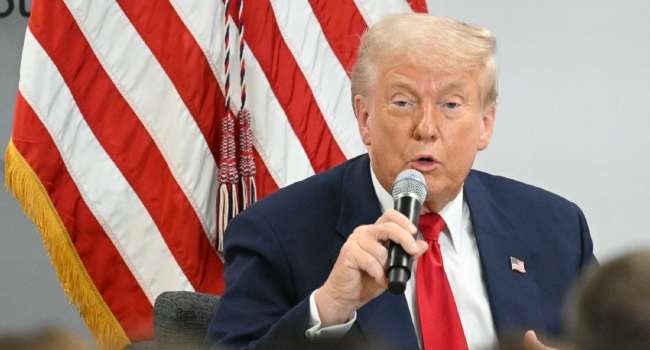
Hundreds of journalists at Voice of America (VOA), Radio Free Asia, Radio Free Europe, and other US-funded media organizations have been placed on leave following an abrupt decision by President Donald Trump’s administration to freeze the outlets.
In a move announced over the weekend, staffers were informed via email that they would be barred from their offices and required to surrender press passes and office-issued equipment. This decision follows an executive order issued by Trump on Friday, which listed the US Agency for Global Media (USAGM) among federal agencies deemed “unnecessary.”
Kari Lake, a staunch Trump ally and head of the media agency, justified the decision by stating that federal grant money “no longer effectuates agency priorities.” The White House defended the move, arguing that it would prevent taxpayers from funding “radical propaganda.”
The decision has sparked widespread criticism. Michael Abramowitz, VOA’s director, who was among 1,300 staffers placed on leave, warned that the move would cripple the outlet’s ability to fulfill its mission. VOA, which broadcasts in 48 languages and reaches 360 million people weekly, has long been a key player in countering Russian and Chinese state-sponsored narratives.
Stephen Capus, president of Radio Free Europe/Radio Liberty, described the cuts as a “massive gift to America’s enemies,” arguing that it would empower authoritarian regimes in Iran, China, and Russia.
Media rights organizations have also condemned the shutdown. Reporters Without Borders labeled it a “threat to press freedom worldwide” and a reversal of the US’s decades-long role in promoting independent journalism. Congressional Democrats, including Gregory Meeks and Lois Frankel, warned that the move would weaken US efforts to counter global disinformation.
The decision is expected to face legal and political challenges, as Congress holds the power to allocate funding. However, for the journalists affected, the uncertainty is immediate. Some employees fear for their safety, particularly those working undercover in authoritarian states, while others on work visas in the US now face the risk of deportation.
“This isn’t just about losing a job,” a Radio Free Asia employee said. “It’s about silencing voices that expose the truth.”








